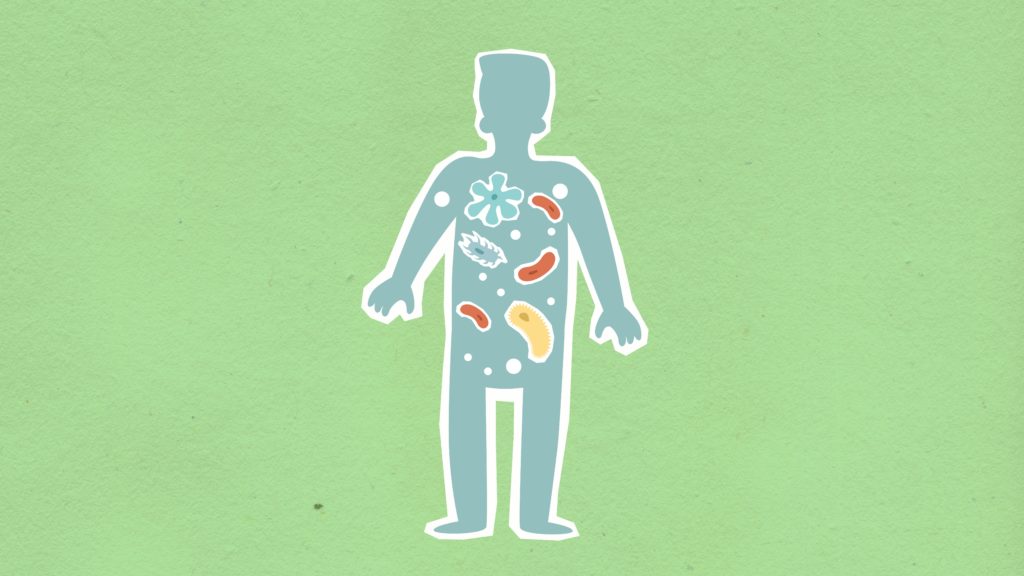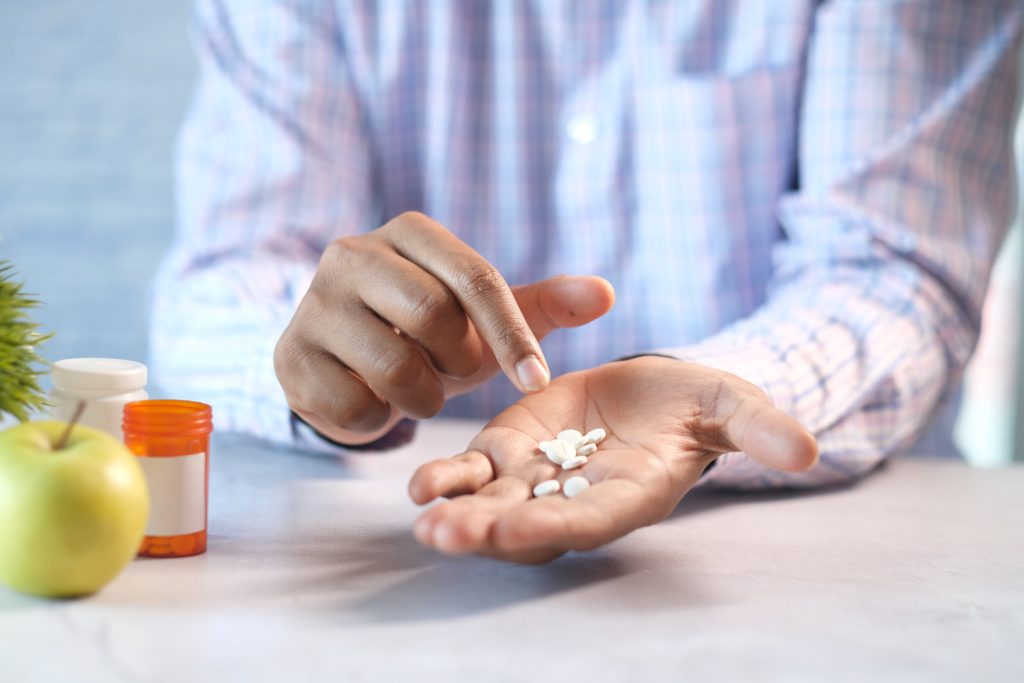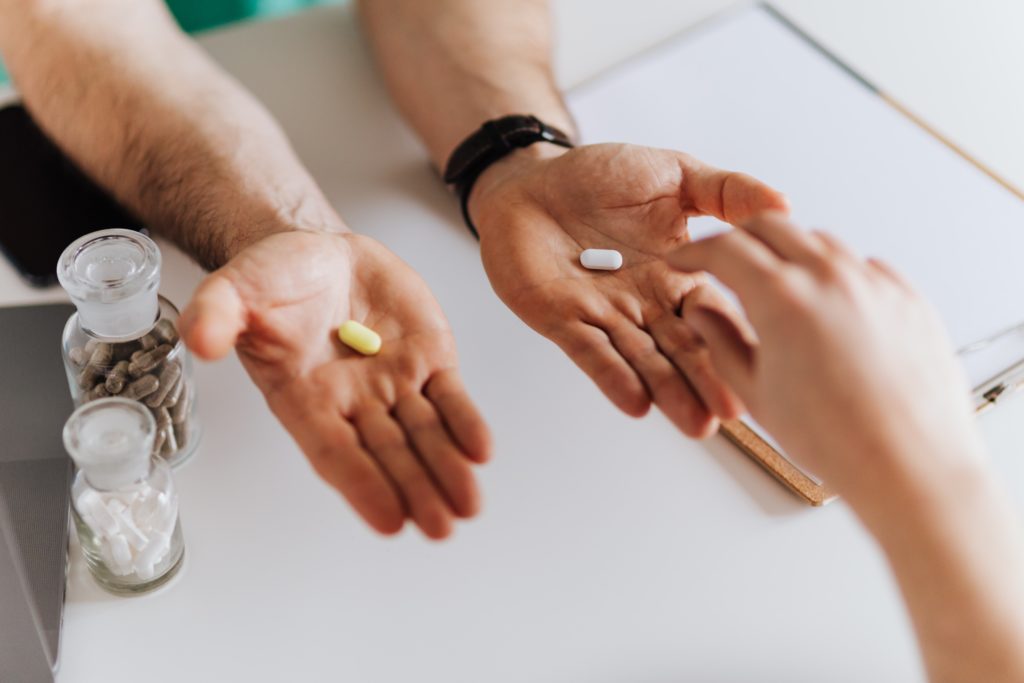Antibiotics are undoubtedly a powerful medicine capable of saving lives when put to the right use. Despite its potential benefits, the misuse and overuse of antibiotics can put the abundant, beneficial microbes that protect our bodies at risk. Previous studies show that antibiotic misuse not only leads to antibiotic-resistant microbes but the development of health issues related to microbiome depletion — some might experience long-term or permanent side-effects from antibiotics.
In order to maintain the health of your microbiome, it’s important that you arm yourself with the tools and knowledge to prevent putting yourself at risk for any adverse effects that follow antibiotic misuse and overuse. However, in the case that you do need to use antibiotics — especially for long-term use — know that there are viable ways to recover. Prioritize your health by learning about treatments you may be prescribed!
How Do Antibiotics Impact the Body?
Antibiotic–Induced Microbiome Depletion (AIMD) is a field of research that looks into the impact of antibiotic-induced microbiome depletion in humans and animals. Studies find that the long-term use of antibiotics predisposes subjects to metabolic imbalance; leading to hyperglycemia, insulin resistance, increased obesity and a greater risk for viral infection.
Antibiotic use also depletes our metabolically helpful, immune-regulating and protective microbes while predisposing us to infections such as C. difficile. Additionally, antibiotic exposure in early life can also have long-term consequences. The microbiome starts to bounce back in the weeks after ceasing antibiotic use, but sometimes the microbiome will never fully recover.

According to the WHO, if left undealt with, multi-drug resistant infections could cause up to 10 million deaths each year worldwide by 2050. The 2020 estimate of death by drug-resistant infection was 0.7 million worldwide. How does this happen? Essentially, the more your microbes are exposed to antibiotics, the more they develop the capacity to degrade the antibiotic before it causes harm. And it won’t be just one or two microbes developing this ability — our microbes are actually capable of sharing and passing this capacity back and forth.
In my experience, I would say the majority of my clients have experienced some form of drug-induced microbiome damage or side effect that is causing acute or chronic complications. This depletion doesn’t always start within their own lifetime. For some, it may have started with their mother having had a depleted microbiome or taking antibiotics while pregnant. Symptoms range from IBS, food or chemical sensitivities, diarrhea or constipation to tendon damage, kidney stones, and mental health or cognitive issues.
So What Can We Do to Protect Ourselves?

1. If you need or are prescribed an antibiotic, make sure you familiarize yourself with the possible side effects. Read the package insert. Ask the prescribing physician about the possible risks and alternatives to the drug.
Whenever possible, trade broad-range antibiotics for narrow-range antibiotics. For example, Ciprofloxacin has historically been — and sometimes still is — prescribed as first-line treatment for a UTI. However, treatment could also be accomplished with urethra- or kidney-specific antibiotics such as Macrobid. Check with your prescribing physician about which antibiotics are most appropriate for your case.
2. Build yourself a diverse and reliable health team that includes preventative care.
You can work with an herbalist or naturopath who can prescribe alternatives to antibiotics if you are not in a life-or-death situation. You could also work with a microbiome specialist to help build a resilient microbiome and immune system, reducing your risk for infection.

3. After taking antibiotics you can support your recovery by eating a diverse and fiber-rich diet.
You can also supplement with prebiotics such as GOS, Acacia powder, or Inulin to speed-up the recovery of your microbes. Probiotic supplements can help, but not to the same degree that prebiotics will. Probiotic supplements will not replace your own endogenous microbes.
4. Research and explore your options!
While it isn’t available as a treatment option for AIMD in North America yet, clinical trials exploring this possibility are ongoing. Faecal Microbiota Transplant (FMT), a treatment for drug resistant colitis infection, is being fast-tracked as a treatment for autism, and is being used to treat IBD in other countries.
While antibiotics are certainly not an inherent threat to our health and have significant benefits when used correctly, there is a great potential for misuse and detrimental health issues that will follow. Make sure to familiarize yourself with the effects that any medication you take could have on your health.
You depend on your body’s microbiome to stay alive — it’s up to you to take care of it. Knowledge is your most powerful tool in assuring your body stays balanced, healthy, and protected!
Sources
Zarrinpar, A., Chaix, A., Xu, Z.Z. et al. Antibiotic-induced microbiome depletion alters metabolic homeostasis by affecting gut signaling and colonic metabolism. Nat Commun 9, 2872 (2018). https://doi.org/10.1038/s41467-018-05336-9
Laura M. Cox, Shingo Yamanishi, Jiho Sohn, Alexander V. Alekseyenko, Jacqueline M. Leung, Ilseung Cho, Sungheon G. Kim, Huilin Li, Zhan Gao, Douglas Mahana, Jorge G. Zárate Rodriguez, Arlin B. Rogers, Nicolas Robine, P’ng Loke, Martin J. Blaser, Altering the Intestinal Microbiota during a Critical Developmental Window Has Lasting Metabolic Consequences, Cell, Volume 158, Issue 4, 2014, Pages 705-721, ISSN 0092-8674, https://doi.org/10.1016/j.cell.2014.05.052.
Thackray LB, Handley SA, Gorman MJ, Poddar S, Bagadia P, Briseño CG, Theisen DJ, Tan Q, Hykes Jr. BL, Lin H, Lucas TM, Desai C, Gordon JI, Murphy KM, Virgin HW, Diamond MS. Oral antibiotic treatment of mice exacerbates the disease severity of multiple flavivirus infections. Cell Reports. March 27, 2018.
Mehta RS, Lochhead P, Wang Y, Ma W, Nguyen LH, Kochar B, et al. (2022) Association of midlife antibiotic use with subsequent cognitive function in women. PLoS ONE 17(3): e0264649. https://doi.org/10.1371/journal.pone.0264649
Dethlefsen L, Relman DA. Incomplete recovery and individualized responses of the human distal gut microbiota to repeated antibiotic perturbation. Proc Natl Acad Sci U S A. 2011 Mar 15;108 Suppl 1(Suppl 1):4554-61. doi: 10.1073/pnas.1000087107. Epub 2010 Sep 16. PMID: 20847294; PMCID: PMC3063582.
Jakobsson HE, Jernberg C, Andersson AF, Sjölund-Karlsson M, Jansson JK, Engstrand L (2010) Short-Term Antibiotic Treatment Has Differing Long-Term Impacts on the Human Throat and Gut Microbiome. PLoS ONE 5(3): e9836. https://doi.org/10.1371/journal.pone.0009836
Simone Becattini et al {2-16) Antibiotic-induced changes in the Intestinal Microbiota and Disease. VOLUME 22, ISSUE 6, P458-478, HTTPS://DOI.ORG/10.1016/J.MOLMED.2016.04.003
World Health Organization (2021) https://www.who.int/news-room/fact-sheets/detail/antimicrobial-resistance
Verdier, C.; Denis, S.; Gasc, C.; Boucinha, L.; Uriot, O.; Delmas, D.; Dore, J.; Le Camus, C.; Schwintner, C.; Blanquet-Diot, S. An Oral FMT Capsule as Efficient as an Enema for Microbiota Reconstruction Following Disruption by Antibiotics, as Assessed in an In Vitro Human Gut Model. Microorganisms 2021, 9, 358. https://doi.org/10.3390/microorganisms9020358
Mitts, K. (2022, July 28). Let’s Get Dirty – 6 Ways To Diversify Your Microbiome Without the Expensive Probiotics. The MAPS Institute. Retrieved from https://themapsinstitute.com/lets-get-dirty-6-ways-to-diversify-your-microbiome-without-the-expensive-probiotics/
